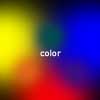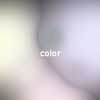 |
tv eye
"And--and I say this as a professional fiction writer--the producers, scriptwriters, and directors who create these video/audio worlds do not know how much of their content is true. In other words, they are victims of their own product, along with us. Speaking for myself, I do not know how much of my writing is true, or which parts (if any) are true. This is a potentially lethal situation. We have fiction mimicking truth, and truth mimicking fiction. We have a dangerous overlap, a dangerous blur. And in all probability it is not deliberate."
Philip K. Dick
speaking of lotus eaters, PKD, writing on how TV viewing is a form of sleeplearning, related that an EEG of a person watching television shows reveals that after about 30 minutes, because there is such little eye motion, the brain decides nothing is happening and goes into a hypnoidal twilight state, emitting alpha waves. Further, he points out that, much of the info being graphic, is processed in the right hemisphere rather than the left where the conscious personality is located. Therefore much is received on a subliminal basis and we only imagine we consciously see what is there. We don't know what we have seen.
PKD's intro to this is that if you can get others to see the world as you do, they will think as you do. then he goes on to say that not only do we not know what we're eating, the feeders don't necessarily themselves know what they're feeding. both we and they think we know, but we and they are clueless.
warning: subterranean conversation is a whole 'nother country dressed up in the same suit of clothes.

the above is the exact same image as below, only the color and saturation levels have been tampered with. but it is still kind of the same image as below. an entirely gratuitous pancaking of elements is taking place with my insertion of these two images here, which taken apart would express no relevance to each other whatsoever (not the images, but the surrounding text and images, for the images are certainly related to each other), but putting them together as I have I'm going to hope the viewer obliges my whim and manufactures a less than tenous connection based on my suggestion that relevance is to be had, even though I've said there is no relevance.

|
we (the royal we) would say our lives are a collection of symbols which we've sleepwalking received from the moment of birth. the symbols proceed from the structural map of our brains, our bodies, and the symbols refer in turn to how we are built.
and of course all that we experience etches itself in the brain and the body. (mom or dad ever strike you? as far as persistent physiological memory is concerned, the belt that whipped your butt is still thrashing you. the time is now, not then.)
in "Almost Transparent Blue" Ryu Murakami describes a woman's flesh taking on the appearance of what we have envisioned as a road map. "First Lilly entered the whiteness. Then I did. For a moment we couldn't hear anything. In a few seconds unbearable pain struck our ears. It was as if they had been pierced with hot needles...She took lipstick from her pocket, tore off her clothes and smeared it on her body, laughingly drawing red lines on her belly, chest, neck. I realized that my head was full of nothing but the stench of heavy oil. There was nothing like a city anywhere. Lilly drew a design on her face with lipstick...I threw myself off the runway. My body was clawed by the wire. The barbs bit into the flesh of my shoulder. I thought I wanted a hole opened in me. I wanted to be free of the oil stench, that was all I thought...For an instant the blue-white flash made everything transparent. Lilly's body and my arms and the Base and the mountains and the cloudy sky were transparent. And then I discovered a single curved line running through the transparency there. It had a shape I'd never seen before, a white curving, a white curving that made splendid arcs."
in "The Box Man" Kobo Abe relates how a man puts on the box which was worn by another and the inside of the box is scarred with writing. "The box with its resident gone was like a deserted house. The aging process had apparently been rapid, and the box had weathered to the color of withered grapes. But at a glance I was able to distinguish that it was the discarded skin of a box man. There, where it appeared half torn away, was what remained of the observation window...the curled vinyl curtain was still pasted on. On the sides the protuberant clusters of little holes for hearing were all swollen like some skin disease. I tried to strip away the surface. It sounded like adhesive plaster tearing off, and the inside of the box was visible. I instinctively inserted myself into the space and concealed this sloughed-off skin from the gaze of those passing by. On the inside of the box, like a handprint impressed in clay, the traces of the life of the former occupant (let us give him the name B for the moment) were vividly and negatively etched...traces of numerous graffiti covered the entire surface...I had the feeling of witnessing the opening of the sarcophagus of B's mummy..."
we once dreamt we were told by an old white-haired man that long, long ago the sky was such that it was blindingly white with the sun, and that people were unable to tolerate this so a graph was made which overlaid all that is, breaking things up into smaller segments, which also made patterns of shadow and light. this their eyes could withstand. this rather reminds of pkd's description of the "iron prison" which he was finally able to see in which we were housed, which he portrayed as mechanically diabolic, even the concoction of an insane god.
how is one to escape the patterns and become individual, free, when one isn't even aware of what one is consuming.
a beginning, we suppose, is to catch the scent of a road map.
let's say that one day one is walking along, free, and one notices the man in the box because one sees the box man seeing one's self. through the little flap one sees a pair of eyes peering at you. big eyes, like in the cartoon "kilroy was here." you are outside, and the next moment you are "in." one is hooked, captivated. and one is suddenly inside the box, when one had thought one was outside it, and inside the box, seeing inside it for the first time, one sees the graffiti, and tries to read it. one must read it because it is a book that demands to be at least observed, if not comprehended.
there is a story in which the prisoner can only be released when he is able to attract another to take his place. suddenly the hero is inside the prison and the prisoner is free. how is the hero to save himself? when one is hooked, pulled up out of the waters of sleep and sees the prefabricated, predetermining house in which one lives, when one sees all as being a part of patterns, when the delusion/illusion of freedom is thus killed, how does one slip out of the bars of a prison which is one's very flesh and being?
how would it feel to be a fisherman and intentionally hook someone into waking up to this knowledge? would you feel like you were mary poppins feeding sugar with medicine? "it's for your own good!"
when done looking at the "we got a bite" page, to which the above link leads, return here by clicking away the browser window in which the page comes up and continue
MENU FOR CORE SITE
The "core" of bigsofa requires a color-coded navigation scheme. White links to the new "core". Tan links to the "old."
bigsofa
please read
lotus eaters
official welcome
tv eye
almost there
what is there to remember
reclamation center
(are you a winner or loser?)
bird speak
test
the unicorn is myopic
under your refrigerator
in the enemy camp
mundane is
coming down the ladder
WEB POINTERS
philip k dick
ryu murakami
kobo abe
*Freud's couch image from the web, visit the Sigmund Freud museum to view his couch in all its colorful glory.
Quoted excerpts from Philip K. Dick, Ryu Murakami's "Almost Transparent Blue" and Kobo Abe's "The Box Man". |

